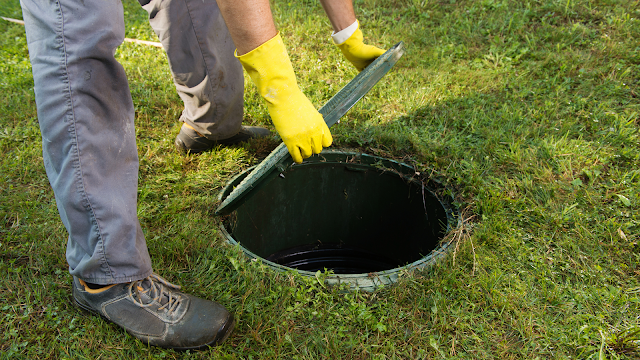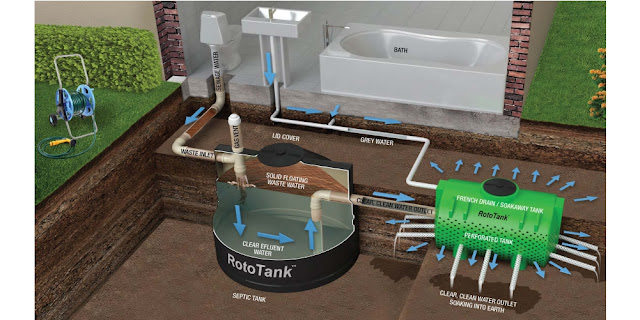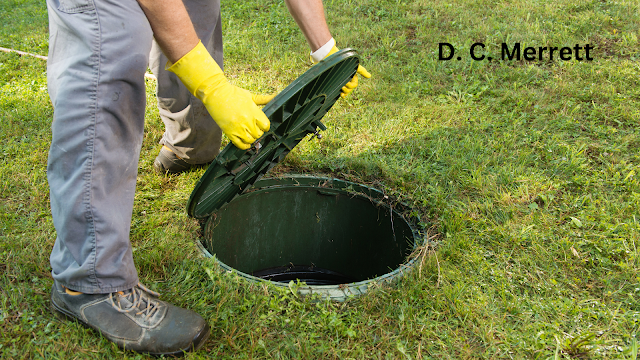What Cleaning Products Can You Use with a Septic Tank?
Choosing the Right Cleaning Products for a Healthy Septic System: A Comprehensive Guide
Maintaining a clean and fresh home is a priority for everyone, but when you have a septic tank, your choice of cleaning products becomes even more important. Septic systems rely on a delicate balance of bacteria to break down waste, and using the wrong cleaning products can disrupt this balance, leading to potential issues. In this article, we'll provide a comprehensive guide to help you choose the right cleaning products that are safe and compatible with your septic tank system.
1. Enzyme-Based Cleaners: Enzyme-based cleaners are specifically designed to be septic-safe. They contain natural enzymes that aid in breaking down organic matter, helping to maintain a healthy septic system. Enzyme-based cleaners are effective for preventing clogs and can be used for various surfaces like countertops, sinks, and toilets.
2. Biodegradable and Eco-Friendly Cleaners: Look for cleaning products labeled as biodegradable and eco-friendly. These products are formulated to break down more easily and are less likely to disrupt the bacterial balance in your septic tank. Biodegradable cleaners are safe for various surfaces and can effectively clean without harming your septic system.
3. Vinegar: Plain white vinegar is a versatile and septic-safe option for cleaning various surfaces in your home. Its natural acidity makes it effective at cutting through grease, removing mineral deposits, and neutralizing odors. Vinegar can be mixed with water in a spray bottle to clean countertops, sinks, and glass surfaces.
4. Baking Soda: Baking soda is a gentle and natural abrasive that can be used for scrubbing surfaces without causing harm to your septic system. It can effectively remove stains, deodorize, and clean sinks, tubs, and tiles. Mix baking soda with water to create a paste for tougher cleaning tasks.
5. Castile Soap: Castile soap is a plant-based soap that comes in liquid form. It's gentle and septic-safe, making it a suitable option for various cleaning applications. You can dilute it with water to create an all-purpose cleaner for surfaces like countertops, floors, and even dishes.
6. Lemon Juice: Lemon juice is a natural degreaser and disinfectant that can effectively clean surfaces. Its acidity helps cut through grime and grease, making it suitable for kitchen surfaces and appliances. You can mix lemon juice with water to create a cleaning solution.
7. Essential Oils: Some essential oils have natural antibacterial properties and can be added to your homemade cleaning solutions for extra disinfecting power. Oils like tea tree, lavender, and eucalyptus can be diluted with water and used as a cleaning spray.
8. Commercial Septic-Safe Cleaners: Some commercial cleaning products are specifically formulated to be safe for septic systems. These products are labeled as such and can be used for various cleaning tasks around your home. Always check the label for certification or indications of septic system safety.
Avoid These Cleaning Products:
To protect your septic system, it's crucial to avoid using cleaning products that contain harsh chemicals, antibacterial agents, excessive fragrances, and non-biodegradable components. Here are some cleaning products to avoid:
Bleach: Excessive use of bleach can harm the beneficial bacteria in your septic tank and disrupt the system's functionality.
Ammonia-Based Cleaners: Ammonia can alter the pH balance in your septic tank and disrupt the bacterial ecosystem.
Antibacterial Cleaners: These products may kill not only harmful bacteria but also the beneficial ones needed for proper waste breakdown.
Harsh Solvents: Strong solvents like acetone and paint thinners can damage pipes and potentially harm your septic system.
Additional Tips for Septic-Safe Cleaning:
Moderation: Even with septic-safe products, use cleaning solutions in moderation to prevent overwhelming the septic system.
Proper Disposal: Avoid flushing non-biodegradable items such as wipes, feminine hygiene products, and excessive amounts of toilet paper. These items can clog pipes and disrupt the septic system's function.
Regular Pumping: Schedule regular septic tank pumping every 3 to 5 years to prevent excessive buildup of solid waste and maintain the efficiency of your system.
Water Conservation: Be mindful of water usage in your household. Fix leaks promptly, install water-efficient fixtures, and avoid excessive water use to prevent overwhelming the septic system.
Professional Inspections: Periodically have your septic system inspected by professionals to identify and address potential issues before they escalate.
In conclusion, maintaining a clean home while caring for your septic system is achievable by choosing septic-safe cleaning products and adopting mindful cleaning practices. By opting for enzyme-based cleaners, biodegradable products, vinegar, baking soda, and other natural solutions, you can effectively clean your home while safeguarding your septic system's health. Remember that moderation, proper waste disposal, and a balanced approach to cleaning are key to maintaining both a clean living space and a healthy septic system.




Comments
Post a Comment